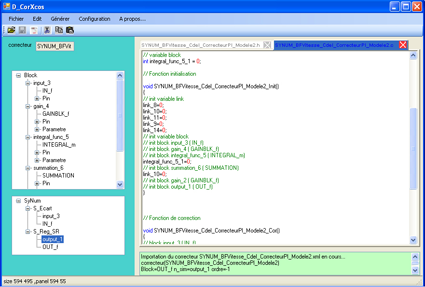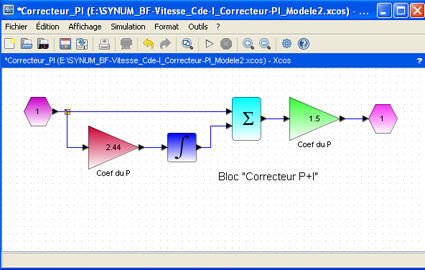

- #Scilab constant how to#
- #Scilab constant software#
- #Scilab constant code#
The default behaviour is for SWIG to generate code that will give a runtime error if long long type arguments are used from Scilab. In SWIG for Scilab 5.x, the long long type is not supported, since Scilab 5.x does not have a 64-bit integer type. it must not have any decimal part, otherwise a SWIG value error occurs. When an integer is expected, if the input is a double, the value must be an integer, i.e.

) are automatically converted to Scilab double values when marshalled from C into Scilab.Īdditionally on input to a C function, Scilab double values are converted into the related integer type.

This is why integer values ( int32, uint32.
In Scilab the double type is far more used than any integer type. The drawaback is that pointer type is lost.įollowing is an example of the wrapping of the C FILE* pointer: Also, a Scilab pointer is always accepted as a pointer argument of a wrapped function. for any reason, if a wrapped pointer type is unknown (or if the SWIG runtime is not initialized), SWIG maps it to a Scilab pointer. type tracking needs the SWIG runtime to be first initialized with the appropriate function (see the Module initialization section). Why a native pointer is not mapped to a Scilab pointer (type name: "pointer", type ID: 128) ? The big advantage of mapping to a tlist is that it exposes a new type for the pointer in Scilab, type which can be acessed in Scilab with the typeof function, and manipulated using the overloading mechanism. Indeed pointer types are stored alongside the pointer address.Ī pointer is mapped to a Scilab structure ( tlist), which contains as fields the pointer address and the pointer type (in fact a pointer to the type information structure in the SWIG runtime). A pointer can be returned from a wrapped C/C++ function, stored in a Scilab variable, and used in input argument of another C/C++ function.Īlso, thanks to the SWIG runtime which stores information about types, pointer types are tracked between exchanges Scilab and the native code. targetversion 6).įunctions are wrapped as new Scilab built-in functions. Note: truncations can be disabled by specifying the target version 6 of Scilab in the targetversion argument (i.e. In these cases, the %rename directive can be used to choose a different Scilab name. This can cause ambiguities, especially when wrapping structs/classes, for which the wrapped function name is composed of the struct/class name and field names. In Scilab 5.x, identifier names are composed of 24 characters maximum (this limitation disappears from Scilab 6.0 onwards).īy default, variable, member, and function names longer than 24 characters are truncated, and a warning is produced for each truncation. There are a few exceptions, such as constants and enumerations, which can be wrapped directly as Scilab variables. 
These C functions are mapped as Scilab functions. This means that functions, structs, classes, variables, etc. SWIG for Scilab provides only a low-level C interface for Scilab (see Scripting Languages for the general approach to wrapping). The SWIG interface (stored in a file named example.i), is the following:ģ5.3 A basic tour of C/C++ wrapping 35.3.1 Overview In this example we bind from C a function and a global variable into Scilab.
#Scilab constant how to#
Let's see how to use SWIG for Scilab on a small example. See A basic tour of C/C++ wrapping for further details. The forthcoming version 6, as of January 2015, is also supported. Scilab is supported from version 5.3.3 onwards. Other operating systems haven't been tested. After this introduction, you should be able to generate with SWIG a Scilab external module from a C/C++ library. More information can be found at This chapter explains how to use SWIG for Scilab.
#Scilab constant software#
Scilab is a scientific software package for numerical computations providing a powerful open computing environment for engineering and scientific applications that is mostly compatible with MATLAB. Pointers, references, values, and arrays.








 0 kommentar(er)
0 kommentar(er)
